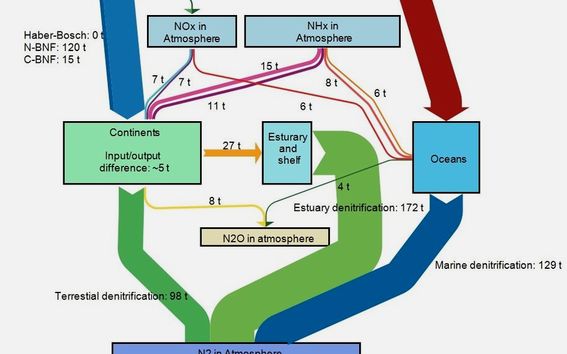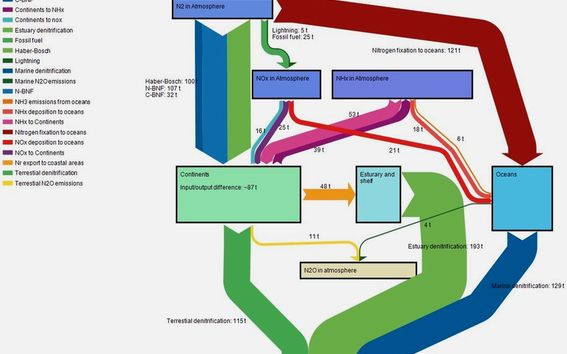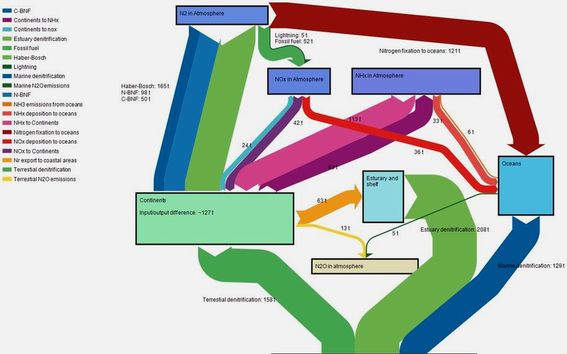2nd post: Nitrogen flows
First post with actual content! This is about the literary review part of my thesis (which will be published soon, promise!) which focuses on nitrogen flows. It came to me as a surprise how much nitrogen flows have changed during the industrial age. Let me show this with few Sankey chart illustrations (modified from Galloway 2004):
This is from 1860. The blue arrow coming from the top is reactive nitrogen formed from atmospheric inert nitrogen by nitrogen fixation (cultivation induced and natural). Most interesting part is that the Continents box. It accounts for the nitrogen in soil and fresh water environment. In pre-industrial era there was practically no accumulation and the flows between different atmospheric compounds and continents are quite narrow.

Moving on to modern time, 1990. The difference compared to the previous timeframe, the Haber-Bosch process steps in as the green part of the largest arrow. This reflects to the accumulation in the Continents box and the other flows. Keep in mind that Haber-Bosch process is what we use to feed the human population so it is relatively critical for our survival. As the human population grows, the more we need fertilizers (assuming that the current method of agriculture stays the same).

Galloway et al. also predicted the future. 2050 chart shows us even more increased flows overall. Scary stuff, right?

Well, maybe not scary. Increased nitrogen availability is not the end of the world, it just changes the environment as we know it: eutrophication, ozone layer depletion and ocean acidification are all related to nitrogen compounds. Things moving on like this, the Earth system is bound to change permanently. The scary thing could be that I don’t really know what happens when the Earth system changes (not my area of expertise). I guess the question is multidisciplinary by nature anyway.
Coming back to the purpose of this post, I find it surprising that things have developed up to this point without anyone talking about it publicly. It’s always CO2 this, CO2 that. We tend to forget (or we never knew to begin with) that Earth system consist multiple different aspects and they all are affected by human activities. Should I be shouting “Wake up people!”?






